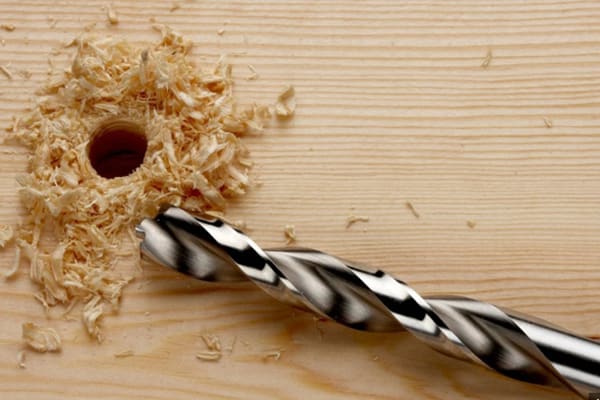When it comes to woodworking, one of the most common tasks is hollowing out wood for various purposes, such as creating holes for dowels, routing cables, or making recesses for hardware. Choosing the right hollow drill bit for this job is crucial for achieving clean and precise results. With many options on the market, it is not very clear which drill bit works best for hollowing out wood.
The Hollow Drill Bit: What Is It?
A hollow drill bit is a specialized tool designed to create a void or hollow space in materials like wood. Unlike regular drill bits that remove a cylindrical material, hollow drill bits cut along the perimeter, leaving the center portion intact or easily removable. This makes them particularly useful for tasks that require clean, precise hollowing without excessive material removal.
Hollow drill bits come in various sizes and shapes, each suited for different types of wood and specific applications. Professionals and hobbyists often use them in woodworking, construction, and even DIY projects. Now, let’s look at some of the best drill bits you can use to hollow out wood effectively.
1. Forstner Bits
One of the most popular types of drill bits for hollowing out wood is the Forstner bit. Forstner bits are well known for their ability to create smooth, flat-bottomed holes in wood. They cut clean, precise circles, making them an ideal choice for hollowing tasks where accuracy and a neat finish are essential. Unlike standard drill bits that tend to wander on the surface, Forstner bits stay in place and offer greater control over the drilling depth.
Forstner bits come in various sizes and are ideal for drilling larger-diameter holes that may require hollowing out substantial areas. They are commonly used in cabinetry, furniture making, and other detailed woodworking projects where precision is crucial. While they are best suited for hardwoods, they can also handle softwoods with ease.
2. Spade Bits
Another popular option for hollowing out wood is the spade bit. Spade bits are flat with a sharp point at the center and two cutting edges extending outwards. They are effective at quickly removing material, making them suitable for tasks that require larger hollow areas, such as creating holes for wiring or plumbing.
While spade bits are not as precise as Forstner bits, they are highly efficient and work well for rough hollowing where speed is more important than the appearance of the hole. They are ideal for softwoods and plywood but can also be used on harder woods with the right technique. Due to their simplicity and effectiveness, spade bits are a staple in many woodworking toolkits.
3. Hole Saw Bits
For larger hollowing projects, hole saw bits are an excellent choice. These bits feature a saw-like circular cutting edge that removes a ring of material, leaving the center part of the wood intact. Hole saws are perfect for making larger, circular holes in wood, such as those needed for doorknobs, light fixtures, or other installations that require significant hollowing.
Hole saws are available in various diameters, giving woodworkers flexibility when choosing the size of the hole they need. One of the benefits of hole saws is that they work efficiently with both soft and hardwoods. They also come in a range of materials, including carbide-tipped and bi-metal versions, making them suitable for different applications.
4. Auger Bits
If you’re working with thicker pieces of wood or need to drill deep, auger bits are a fantastic choice. Auger bits feature a long, spiraled body that efficiently removes material as it drills, making them ideal for deeper hollowing tasks. The design allows for smooth and continuous cutting, which is perfect for boring holes through thick wood beams or creating deep recesses in projects such as furniture construction.
Auger bits are particularly well-suited for softwoods, but they can also handle hardwoods with the right speed and pressure settings. The deep-fluted design helps clear wood shavings as the bit works, reducing the risk of clogging and improving drilling efficiency.
5. Core Bits
For professional-grade hollowing jobs, core bits are another effective tool. While not as commonly used in woodworking as in masonry, core bits can be adapted for use with wood, particularly when very large holes or cylindrical hollows are needed. Core bits function similarly to hole saws, but they are typically used for drilling deep, precise holes in thicker materials.
In woodworking, core bits are most often employed for large installations or specific industrial applications. They work best with power tools like drill presses to ensure steady pressure and avoid excessive strain on the bit.
Conclusion
Choosing the right hollow drill bit for your woodworking project depends on the size, depth, and precision required for the task. Forstner bits are ideal for clean, flat-bottomed holes, while spade bits offer speed and efficiency for larger, rougher holes. Hole saw bits are perfect for cutting large circular holes, and auger bits excel in deep drilling tasks. For heavy-duty, professional applications, core bits provide a reliable option.
Post time: Sep-14-2024
















